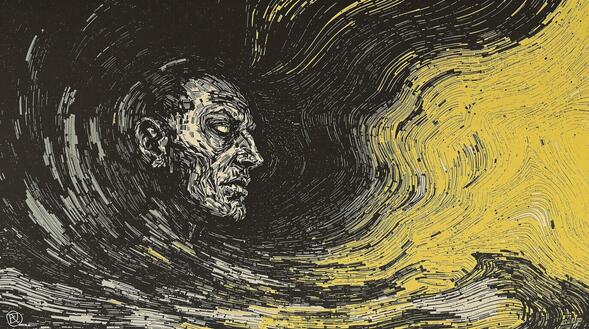In this chapter, Zarathustra addresses those who are the “despisers of the body”, while also speaking to his “brother”. He begins by asserting that he wishes to speak to these individuals, not to retrain or re-educate them, but to encourage them to bid farewell to their own bodies and thus fall silent. This sets the stage for a discourse on the relationship between the body, the self, and consciousness.
Zarathustra contrasts the innocent perspective of a child, who says, “I am body and soul”, with that of the enlightened individual who proclaims, “I am entirely body, and nothing else; the soul is merely a word for something about the body”. This shift emphasizes the primacy of the body as the fundamental basis of existence, relegating the soul to a secondary or derivative status. He personifies the body as a “great reason”, a complex unity with a singular purpose, likening it to both a war and a peace, a herd and a shepherd.

A tool of your body is also your small reason, my brother, which you call ‘spirit’, a small tool and plaything of your great reason.
The “small reason”, which individuals call “spirit”, is depicted as a mere tool or plaything of the body’s greater reason. Zarathustra suggests that the conscious mind and its sense of self—the “I”—are subordinate to the body’s inherent wisdom and drives. He asserts that while people take pride in their conscious identity, there exists something greater in which they do not believe: the body’s vast reason that does not articulate “I” but enacts it through actions.
Further, Zarathustra explores the idea that sensory perception and intellectual cognition do not have intrinsic ends; they are instruments used by the self, which resides within the body. This “self” is the true commander behind thoughts and feelings, an “unknown sage” that governs the conscious mind. It seeks, listens, compares, conquers, and destroys, exerting control over the “I”.
He elaborates that the self communicates with the “I” by inducing sensations of pain and pleasure, guiding the conscious mind to think in ways that serve the body’s deeper purposes. The self laughs at the I’s pride and rationalizations, viewing them as detours toward its own aims. The body’s inherent wisdom surpasses that of the conscious mind, and the reasons for which the body requires the mind’s highest wisdom remain unknown to the individual.
Zarathustra then directly addresses the despisers of the body, pointing out that their contempt reveals their underlying values and judgments. He questions what has created notions of esteem, value, and will, suggesting that it is the creative self—the body—that has fashioned pleasure, pain, and even the spirit as an instrument of its will.

Your self wants to go under, and that is why you have become despisers of the body! For you are no longer able to create beyond yourselves.
He observes that even in their scorn and folly, the despisers serve their own selves. Their self desires to perish because it can no longer achieve its foremost desire: to create beyond itself. This inability leads to a turning away from life and a latent envy manifesting as contempt for existence. Zarathustra distances himself from these individuals, asserting that they are not conduits to the Übermensch.
The text challenges dualistic notions separating body and soul, advocating for an understanding of the human being as an integrated whole where the body is the foundation of existence and the driver of what is traditionally considered the domain of the mind or spirit.
